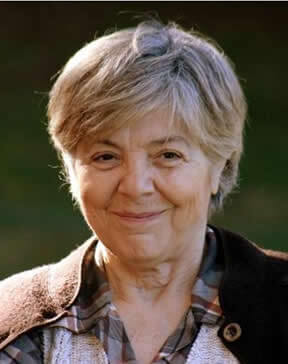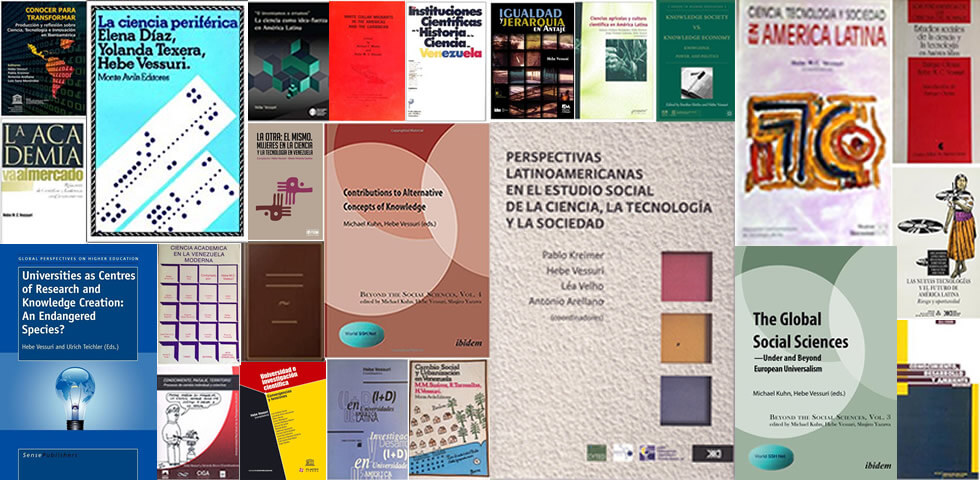Bernal Prize 2017: Hebe Vessuri
The Society for Social Studies of Science annually awards its Bernal Prize to an individual judged to have made a distinguished contribution to the field. Past winners have included many of the founders and prominent scholars who have devoted their careers to the understanding of the social dimensions of science and technology. The 2017 Bernal Prize winner is Hebe Vessuri, an Argentinian anthropologist whose contributions to the field of Science and Technology Studies have been methodological, empirical, conceptual, and institutional. Vessuri is author and editor of 31 books, and hundreds of articles, book chapters and government reports, written in English, Spanish, French, and Portuguese. A pioneer in the anthropology of science with fieldwork experience throughout Latin America, Vessuri has demonstrated how ethnographic studies of the sciences can inform both social theory and policy. Her conception of national styles of science, peripheral science, and of the cultural role of science in less-developed countries have been particularly influential in Latin America, helping define STS in the region. Her analyses of the role of science in diverse societies speaks powerfully to issues at the heart of contemporary politics around the world.
Vessuri has also made important institutional contributions, throughout Latin America and at the international level. She helped found STS graduate programs in Venezuela (in 1978) and Brazil (1987), and was a founding member of the Latin American Association of Social Studies of Science and Technology (ESOCITE). She was the chairwoman of the Latin America Council of Social Science (CLACSO’s) Commission of Science, Technology and Development (1981-1985), and was a member of the Governing Council of the United Nations University and president of the Council in 2009. Vessuri has also been a member of the Commission for Ethics in Science at UNESCO (2008-2015), and Vice-President of the Scientific Committee of UNESCO Forum for Higher Education, Research and Management (2003-2010). Vessuri was Vice-President of the International Union of Anthropological and Ethnological Sciences (IUAES) (1978-1983), and also held positions on the International Risk Governance Council (IRGC) (2004-2006), the International Council for Science (ICSU) (2005-2009), and the International Program for Human Development (IHDP, run by the International Council for Science (ICSU) and the International Social Science Council (ISSC) ) (2004-2006).
Vessuri serves on the editorial boards of many journals, including Social Studies of Science; Science, Technology & Human Values; Industry & Higher Education; Interciencia (Venezuela) and Redes (Argentina). Along with Pablo Kreimer, Lea Velho, and Antonio Arellano, Vessuri also published the first handbook of Latin American STS, titled Perspectivas Latinoamericanas en el Estudio Social de la Ciencia, la Tecnología y la Sociedad (2014), which became a landmark in the region. The handbook draws together junior and senior scholars, and provides an up-to-date overview of the field, its challenges and future directions.
Vessuri has also been an outstanding mentor for generations of STS scholars in Latin America. Colleagues describe how she has guided many young academics through complex, sometimes dangerous, regional socio-political contexts, demonstrating extraordinary scholarly skill as an anthropologist of science while exemplifying the highest levels of human decency and professional modesty. Colleagues also note that Vessuri could have been a highly renowned scholar working in any Northern institution, but that she chose the South, with its challenges and opportunities. This was a difficult decision, made once and again throughout her life. A decision that at the end of the day marked out the path both for her career, and for many who admire Vessuri as an academic and as a woman.
In 2006, Vessuri received the Science and Technology National Prize awarded by the Venezuelan government. In 2014, Vessuri received the first Oscar Varsavsky Award for Lifetime Achievement, awarded by ESOCITE.
Vessuri’s work embodies the global scope and significance of STS, and how the intellectual work of STS has been carried out at different scales, in different organizational and political contexts, linking researchers, and research to governing institutions — often in the face of many challenges.
Currently, Vessuri is emeritus researcher of the Center for Social Studies of Science in the Institute of Scientific Research (IVIC) in Venezuela, a researcher at the Research Center for Environmental Geography (CIGA)-Universidad Nacional Autónoma de Mexico, and is principal researcher of CONICET at the Institute of Human and Social Sciences in Patagonia, Argentina.
See a short lecture by Professor Vessuri on The Role of Science in the Ideology of Five Models of Latin American Modernity, and a short interview on open science.
Committee
The 2017 Bernal Prize Committee included Kim Fortun (chair), Wen-Hua, Kuo, Erika Szymanski, Tania Pérez Bustos and Michael Lynch.
Acceptance of the J.D.Bernal Prize 2017
Hebe Vessuri
I am very grateful to the Nomination Committee and to the 4S. It has been a wonderful surprise for me of what is surely a reflection of the increasingly international character of the 4S, which has begun to look into the Global South. I first attended these gatherings in Washington in 1979. By then I was very intrigued by the features of the field in the US, with which I was even less familiar than with those in Europe –UK and France. I had recently changed my country of residence and my field of work because I was in political exile from Argentina, just a few years after being awarded my doctorate (D.Phil) in Anthropology in Oxford. At the time, I became excited at the idea of studying the causes of what seemed the persistent failure to build modern, open, more equitable societies in Latin America. The role of scientists and of science in all this promised to offer some keys to understanding, particularly in a setting like Venezuela, my adopted country, in the 1970s in the context of a new democracy full of enthusiasm and creativity. I found that scientists were keenly interested to discuss the future of the country and the region. One way or another, this concern for understanding the role of science and scientists in the developing world has been with me ever since.
I have worked on hierarchy and stratification in the social organization of science, the peripheral nature of the bulk of science produced in the developing world, the strategies of scientists from developing countries to make their work visible. My work is premised on the dilemma of either using/doing science to respond to the challenges of local societies or becoming potentially integrated into the mainstream of science, the recognition that knowledge is situated, the tricks of the international science game complicated by the rules of funding structures and philanthropy. Again and again I was surprised to realize that stronger Northern scientific communities rediscovered a number of heterogeneous ideas proposed and discussed in the Global South, which on the way lost track of their origin. Ultimately, this does not matter. It is not a question of crying for a seat at the banquet. What is interesting is that with time a more international effort has become truly possible through the cultivation of diversity. I am pleased and honored to accept the nomination to the 2017 J.D. Bernal Prize. I thank you for the honor.


